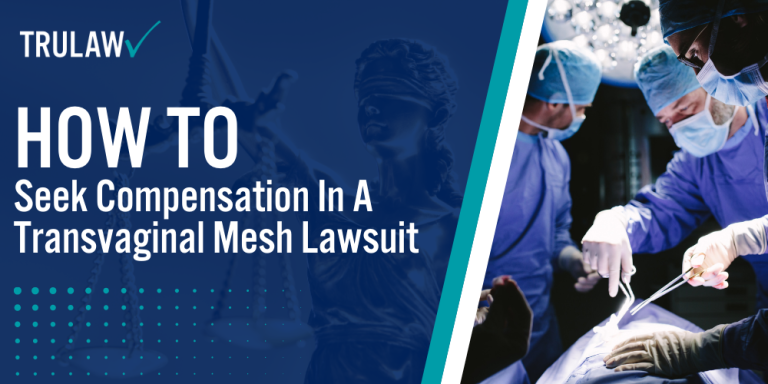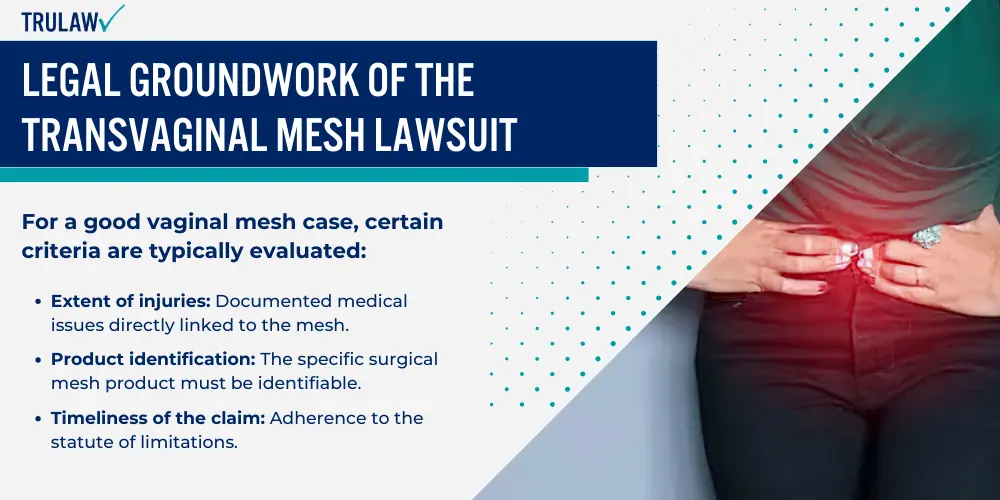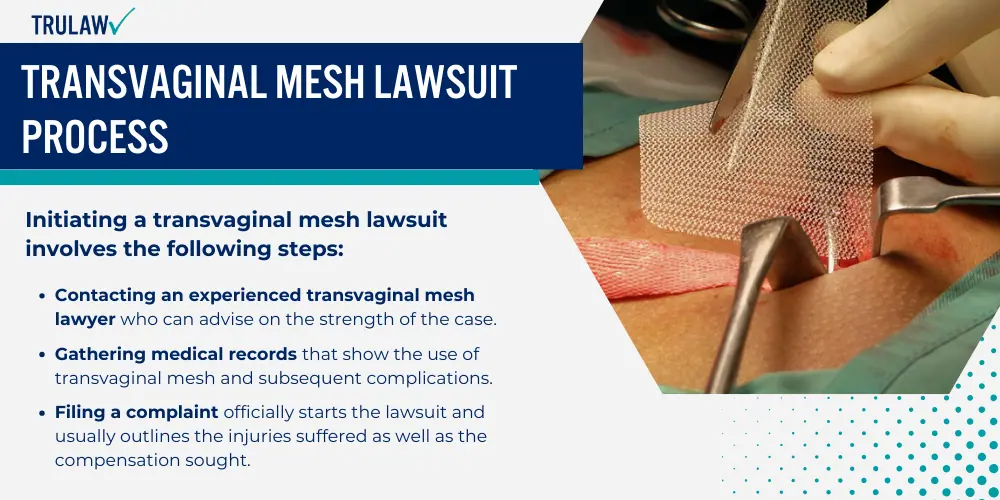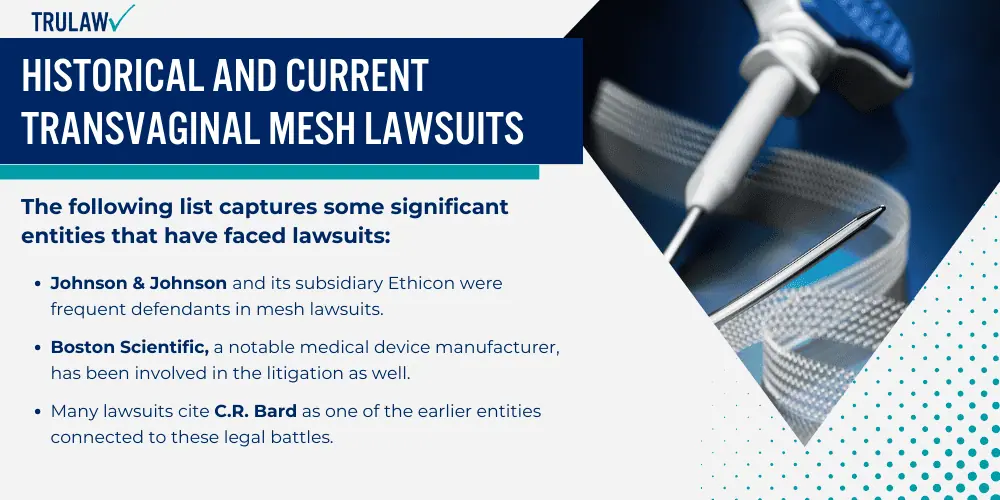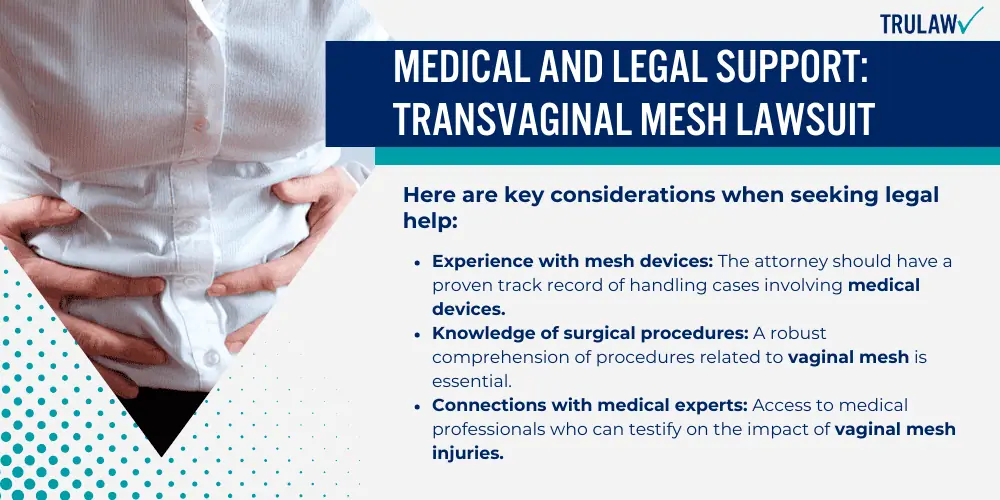The complications from transvaginal mesh implants are leading to numerous personal injury claims to pursue compensation.
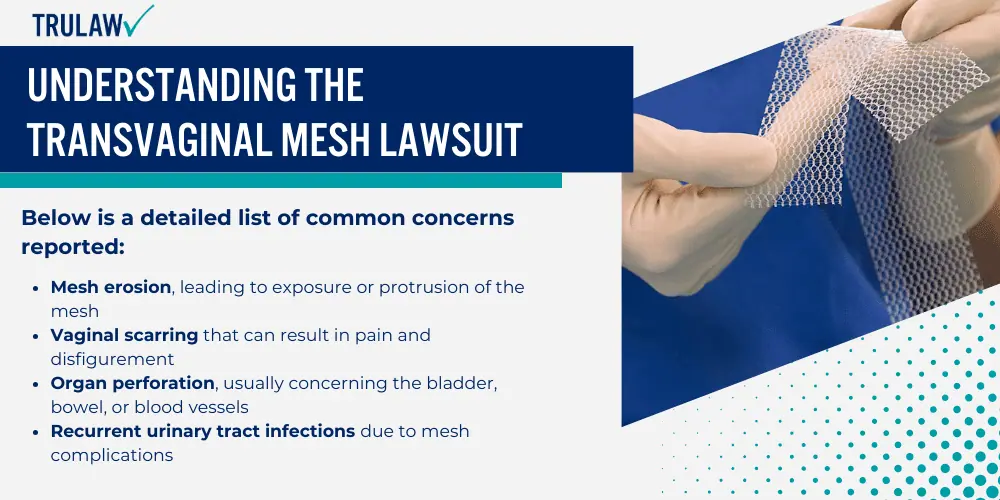
Common Complications Associated With Mesh
The transvaginal mesh lawsuit is rooted in the various complications that patients have experienced after receiving mesh implants.
These complications range from discomfort to severe medical issues.
Below is a detailed list of common concerns reported:
- Mesh erosion, leading to exposure or protrusion of the mesh
- Vaginal scarring that can result in pain and disfigurement
- Organ perforation, usually concerning the bladder, bowel, or blood vessels
- Recurrent urinary tract infections due to mesh complications
- Chronic pain affecting the pelvic area and daily activities
- Painful sexual intercourse, often due to mesh irritation or displacement
Types of Transvaginal Mesh Implants
Several types of transvaginal mesh implants have been used in surgeries, which vary in design, purpose, and the material they are made from.
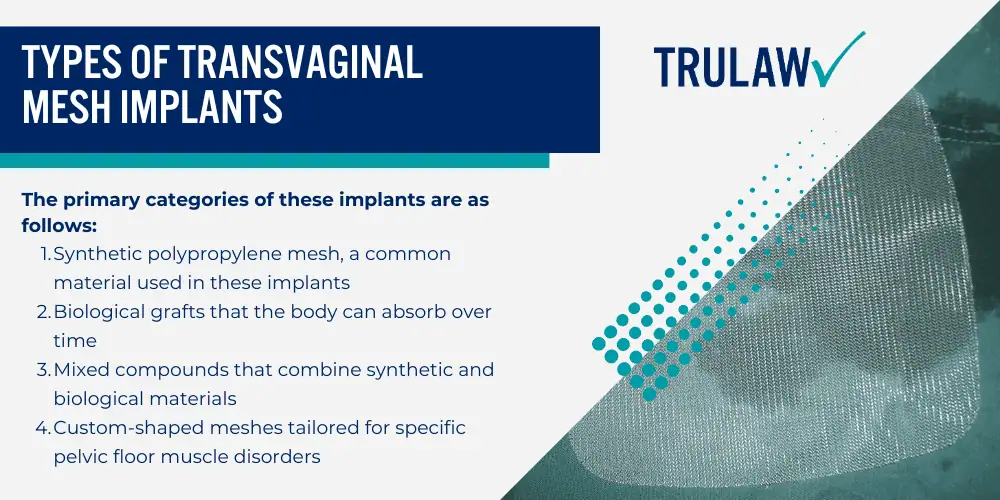
The primary categories of these implants are as follows:
- Synthetic polypropylene mesh, a common material used in these implants
- Biological grafts that the body can absorb over time
- Mixed compounds that combine synthetic and biological materials
- Custom-shaped meshes tailored for specific pelvic floor muscle disorders
Long-Term Health Risks
Patients who have experienced serious complications from vaginal mesh implants also face potential long-term health risks.
The long-term risks of vaginal mesh implants include, but are not limited to:
- Persistent vaginal mesh complications that may require additional surgeries
- Ongoing pain that may lead to a dependence on pain medication
- Emotional and psychological trauma resulting from chronic pain and mesh erosion
- Decrease in quality of life due to the serious complications and their ripple effects on health
- Potential for irreversible damage to pelvic tissues and pelvic organs.
